War puts spotlight on surrogacy in Ukraine
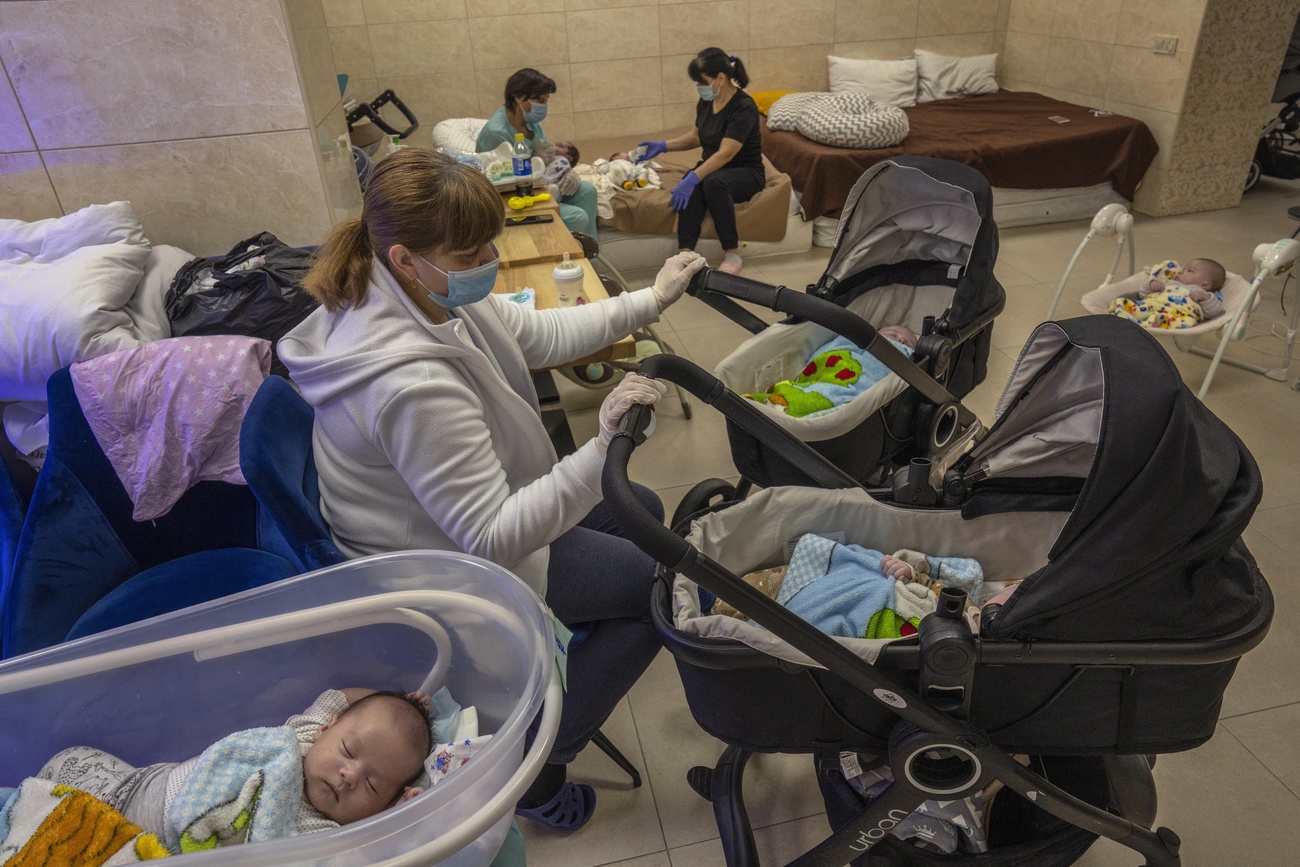
The war has exposed vulnerabilities in the surrogacy business in Ukraine, which has become an increasingly popular option for Swiss couples hoping for a baby.
Mercedes Ferreira-Frey and her husband Roland, who live in Switzerland, never would have imagined that they would be travelling home with their long-awaited baby just as war broke out in Europe.
On February 24, the day the Russian invasion began, they were in the Ukrainian capital, Kyiv, with their newborn son, Cristiano. The doctor did not show up for the appointment to examine the baby. Instead, the couple received a message on their mobile phone.
“The road is blocked. I can’t come,” the doctor wrote.
“A moment later, I saw the news and understood that war had started,” Roland told Swiss public television, RTSExternal link.
The couple were lucky as they were able to leave the country with the last convoy from the Swiss embassy. They reached home safely with their baby.
Many more newborns, however, remain in Ukraine as their parents attempt to fetch them. BioTexCom, the largest surrogacy agency in Kyiv, has transferred its facilities to an underground bunker, where nurses take care of the surrogate babies around the clock.
As the weeks go by, more and more babies are being taken to the border, where their parents are waiting. However, of the 52 babies born since the invasion, around 20 are still waiting in the shelter.
According to Global SurrogacyExternal link, an international surrogacy agency, several countries allow surrogacy, including Mexico, Colombia and Canada. Commercial surrogacy is legal in some states of the United States, and in the countries of Georgia and Ukraine.
Foreign nationals are allowed to conceive children in Ukraine, as long as they are a married heterosexual couple. It is estimated that more than 2,000 babies are born by surrogacy there every year. Most of them are the children of foreign couples like the Freys.
For couples from Switzerland, where surrogacy is banned, Ukraine is the second most popular choice. According to a surveyExternal link commissioned by the Swiss government and conducted by Carolin Schurr, a professor at the University of Bern, around 60% of the 28 couples (including single parents) who conceived a child through surrogacy in 2019 chose the US, followed by Ukraine.
The Swiss Federal ConstitutionExternal link and the Federal Act on Medically Assisted ReproductionExternal link prohibit surrogacy in Switzerland. With the legalisation of same-sex marriage in January 2022, the right of lesbian couples to access donor insemination is also guaranteed, but surrogacy remains illegal.
“There are more options in the US, as same-sex couples and single parents are also accepted,” Schurr explained. “In Ukraine, only heterosexual married couples are allowed [to access surrogacy], but it is cheaper: the cost is about one-third compared to the US. There is also the perceived cultural proximity as a quasi-European country. What’s more, the surrogate mothers are white women.”
An option fraught with risk
Surrogacy offers women who have had their wombs removed because of congenital diseases or cancer, as well as same-sex couples, the possibility to have a child. However, many countries have banned this practice for ethical reasons.
International demand is therefore high – which is why the surrogacy business for foreign couples is booming in countries like Ukraine – even if the option of surrogacy does not always run smoothly.
“Cross-border surrogacy always involves a risk,” says Anika König, a social and cultural anthropologist at the Free University of Berlin and associate researcher at the University of Lucerne.
The industry also faced challenges two years ago when the Covid-19 pandemic broke out. Because of travel restrictions, parents could not pick up their newborns.
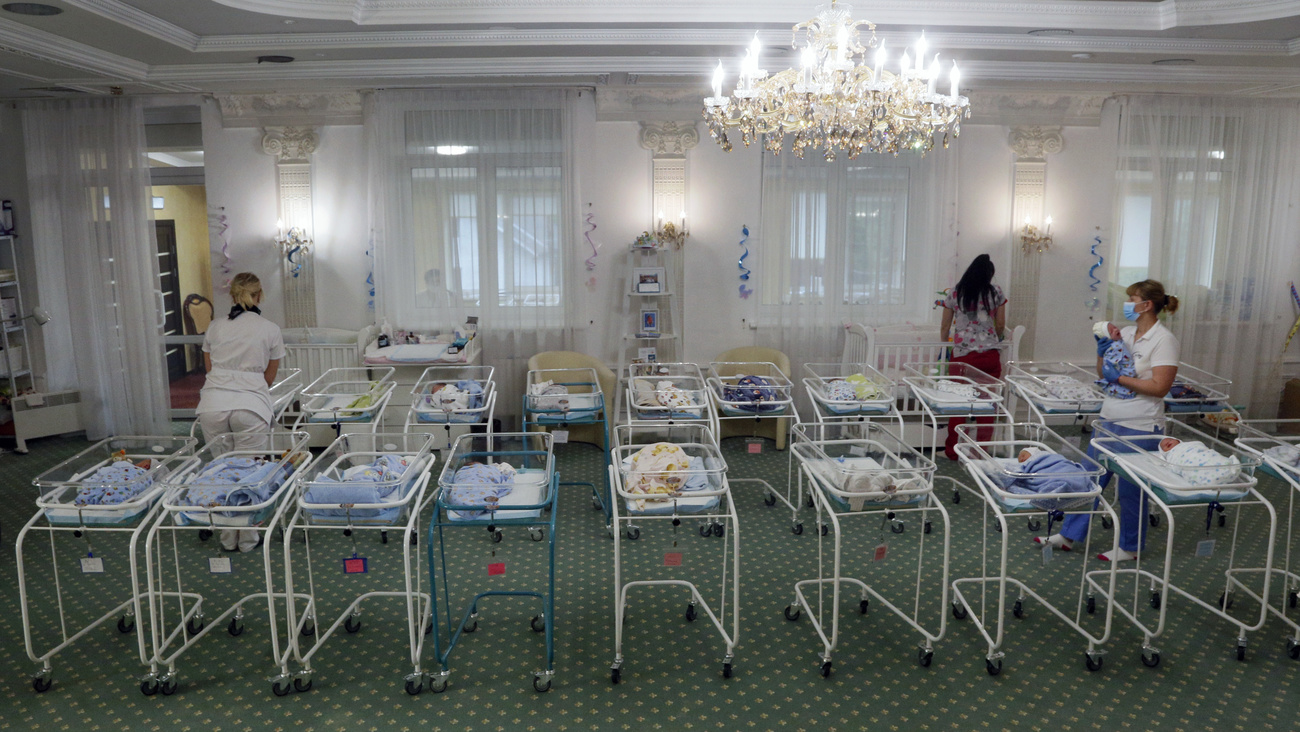
Now the Russian invasion has forced Ukrainian surrogate mothers to choose between fleeing the country and staying in a war zone. But if they give birth outside the country, there is the risk that their babies will not be legally recognised as the children of their “clients”.
Although a pandemic cannot easily be compared to a war, “both show where there are particularly great risks”, said König. “As soon as border crossings are necessary, this makes arrangements such as surrogacy more vulnerable to crises.”
Protecting the rights of surrogate mothers
A more fundamental issue, however, is that the rights of surrogate mothers are not sufficiently protected in countries like Ukraine, said Schurr, author of the Swiss survey on surrogacy.
In the Ukrainian surrogacy programme, clients from Western countries or China must pay €40,000-50,000 (CHF41,000-51,000) before they can hold their baby in their arms.
“The surrogate mothers receive only a fraction of this,” said Schurr. The surrogates themselves often suffer from the physical and emotional stress of hormone treatments and pregnancy. “But once the child is born, no one cares about the surrogate mother.”
A total ban on cross-border surrogacy would not help solve the problem, König believes.
“Surrogacy would slip under the radar, making surrogate mothers even more vulnerable,” she said. Instead, it would make more sense to legalise surrogacy in all countries, including Switzerland, and to draw up clear ethical standards and guidelines to protect the rights of surrogate mothers, children and parents, she added.
International rules are urgently needed, and Switzerland should play a leading role in this, according to Schurr. In particular, the rights of surrogate mothers and egg donors must be safeguarded.
“They must be protected from any long-term health and psychological consequences,” she said.
Translated from German by Julia Bassam
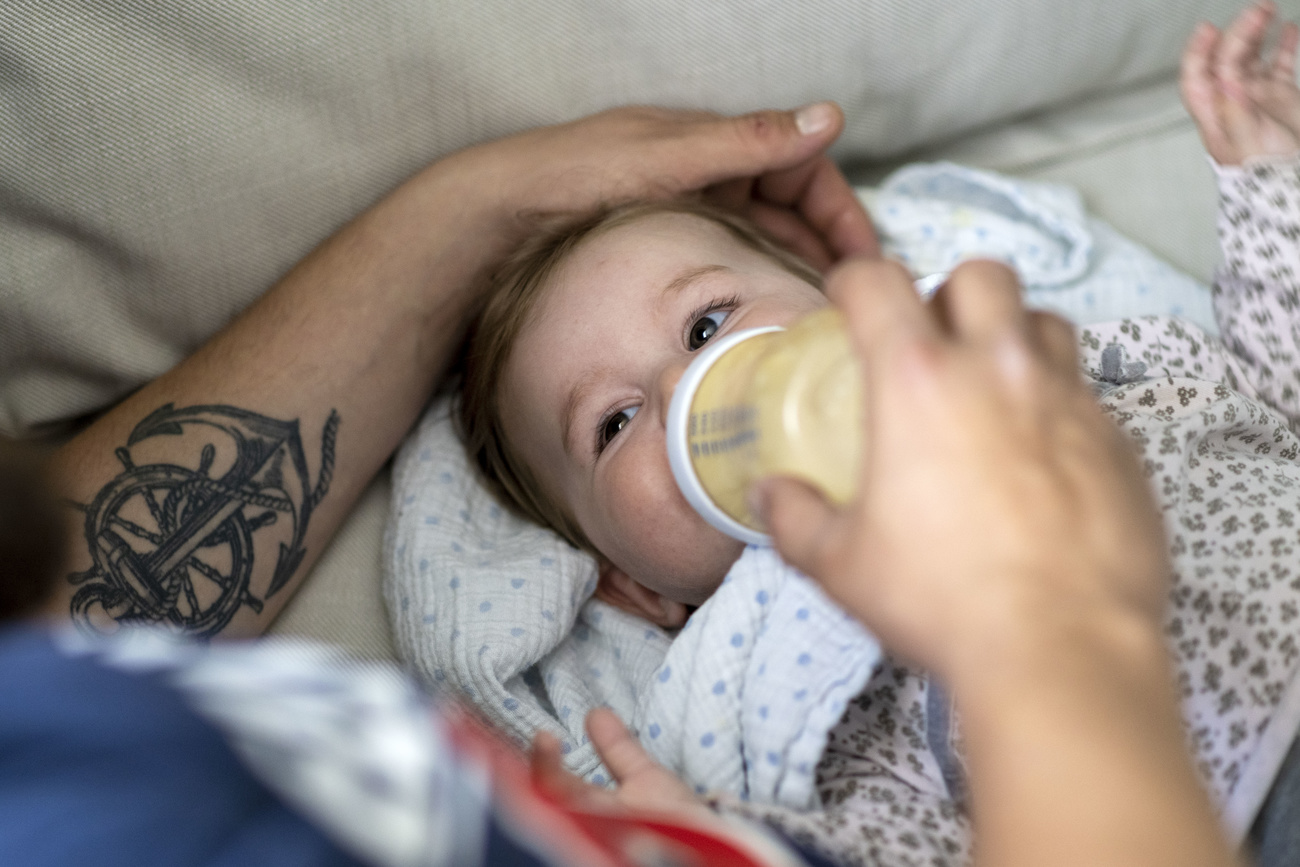
More
Survey shows surprising number of surrogate babies

In compliance with the JTI standards
More: SWI swissinfo.ch certified by the Journalism Trust Initiative









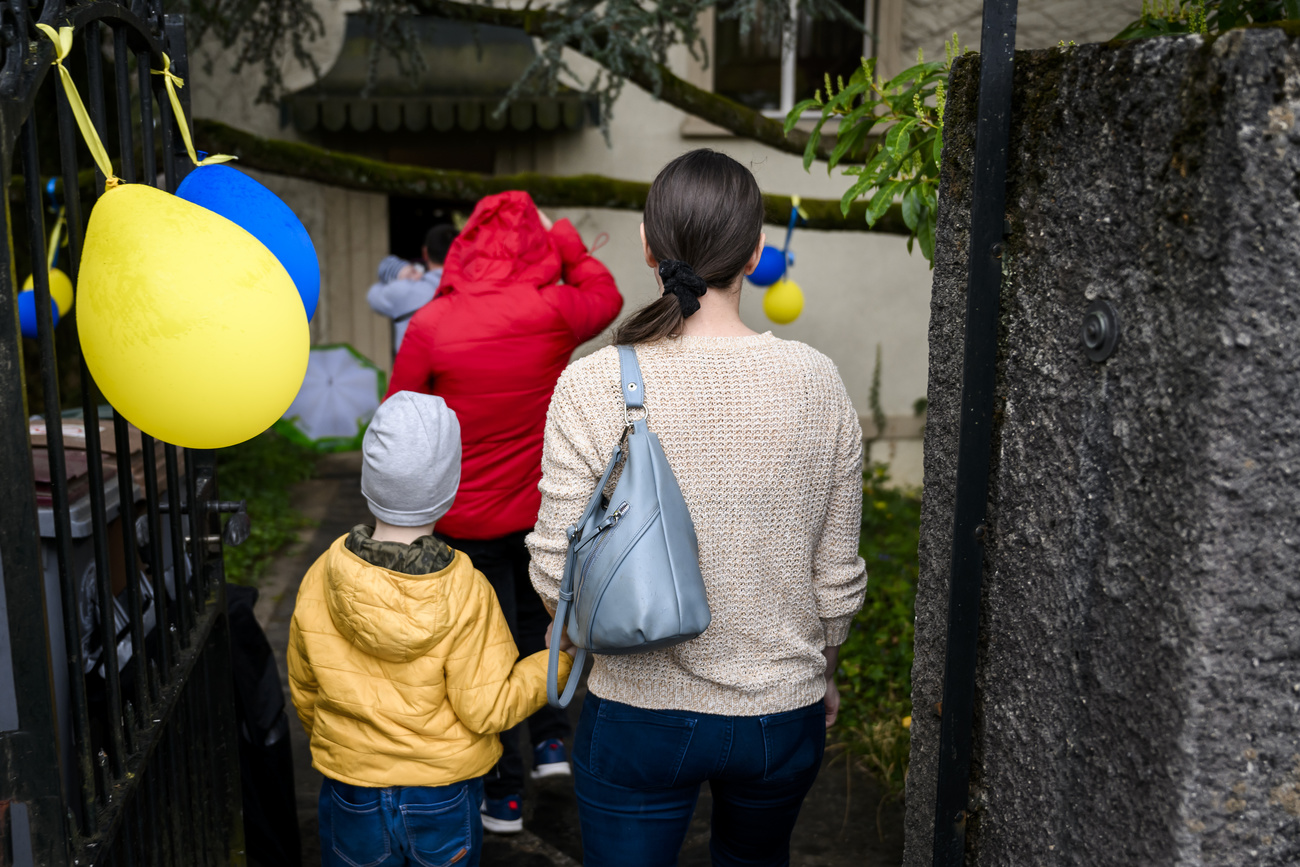
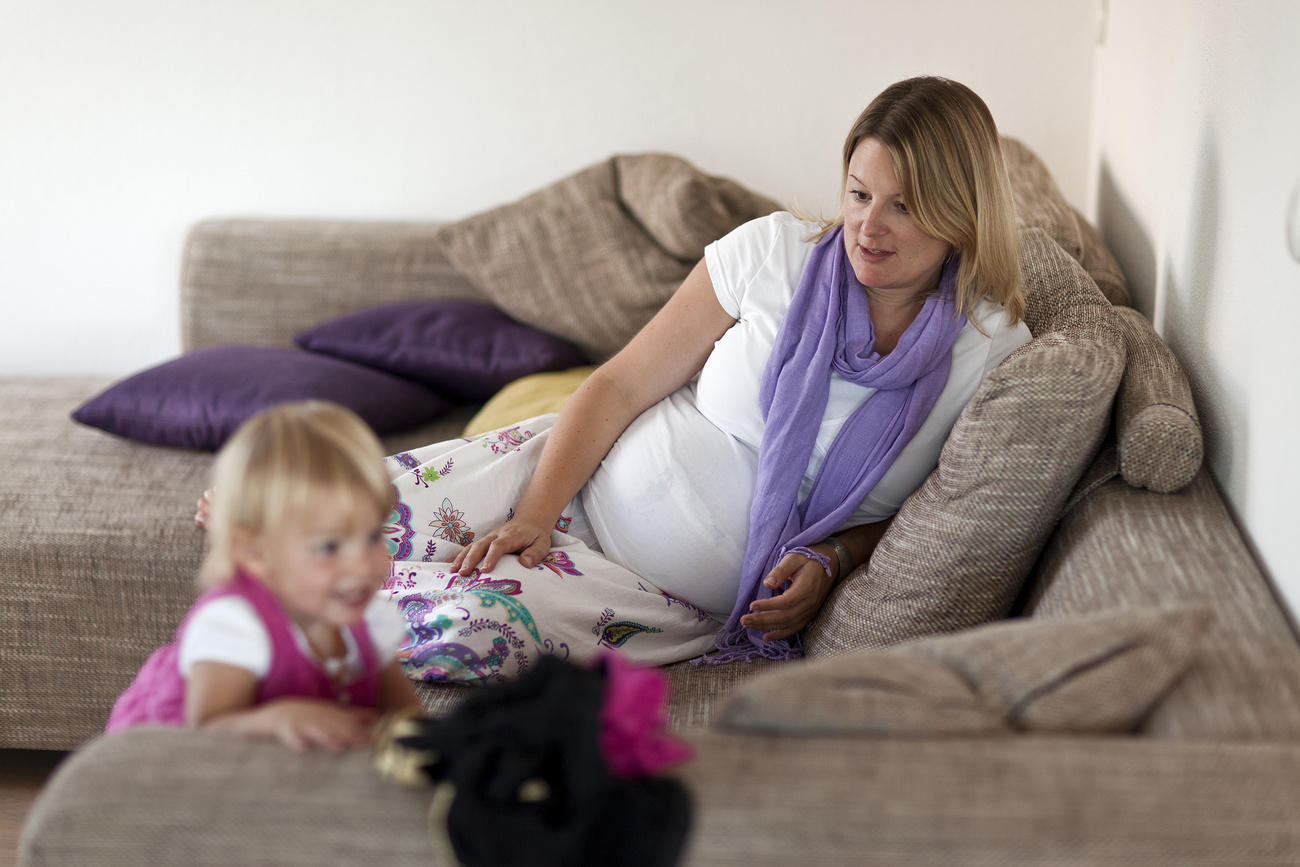
You can find an overview of ongoing debates with our journalists here . Please join us!
If you want to start a conversation about a topic raised in this article or want to report factual errors, email us at english@swissinfo.ch.